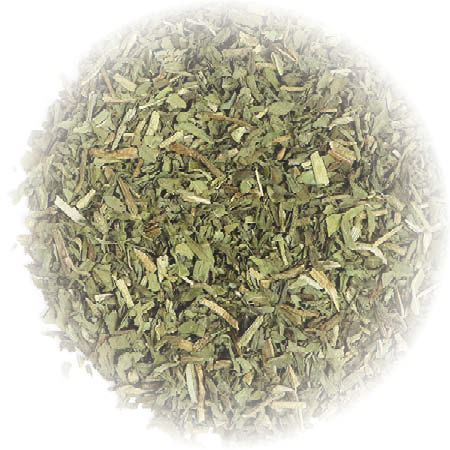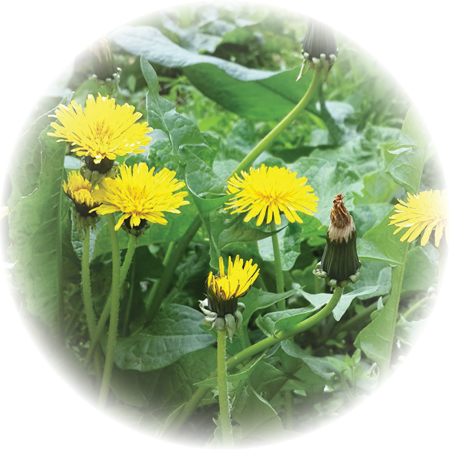Dandelion Leaf (Taraxacum officinalis) – Dried Herb, Organic
$18.77 – $187.70
Dandelion is a weedy perennial herb of the genus Taraxacum native to Eurasia and northern Africa, but widespread and naturalized throughout much of temperate North America and the rest of the world. Dandelion grows everywhere, and is wild collected in a variety of climates, even in the Himalayas up to about 12,000 feet, where it is often gathered for use in Ayurvedic medicine.
The most familiar species is T. officinale, which bears a sun-yellow flower head that is actually composed of hundreds of tiny flowers typical of the Asteraceae family. It closes in the evening or during cloudy weather and opens back up in the morning, much like its cousin calendula. Dandelion Leaf is collected before flowering and the Root is collected in autumn or whenever its inulin content is the highest.
In French, Dandelion is pissenlit, a noun composed of a conjugated form of the verb pisser, to piss; the preposition en, meaning in; and the noun lit, denoting bed (to piss in bed), because this plant was formerly well known for its diuretic properties. In the southwestern U.S., in Spanish speaking communities practicing herbalism, dandelion is called ‘diente de leon’, meaning lion’s tooth.
Dandelion Leaf has been used for centuries in traditional medicine practices all over the world as a restorative tonic, edible food and in herbal beers and wines. The use of Dandelion was first recorded in writing in the Tang Materia Medica (659 B.C.E.), and then later noted by Arab physicians in the 10th century. It first appeared in European history in the 13th Century when it was used by the Welsh. They were well known to ancient Egyptians, Greeks and Romans, and are recorded to have been used in Traditional Chinese Medicine for over a thousand years.
In the United States, various indigenous cultures considered dandelion to be a prized edible, a gastrointestinal aid, a cleansing alterative and a helpful poultice or compress. The Algonquian ate the leaves for their alterative properties and also used them externally as a poultice. Additionally, the Aleut steamed leaves and applied them topically to sore throats. The Cherokee made a tea of the plant (leaves and flowers) for calming purposes. The Iroquois as well made a tea of the whole plant, and considered it an alterative tonic.
In Traditional Chinese Medicine (TCM) Dandelion is referred to as ‘Xin Xiu Ben Cao’ or ‘Pu Gong Ying’ and considered to be energetically sweet, drying and cooling. According to TCM, Dandelion clears heat from the liver and has a beneficial effect on the stomach and lungs, and it can uplift the mood and support lactation.
Dandelion Leaf is as an excellent source of vitamins A, C and K. It also contain vitamin E, folate and small amounts of other B vitamins. Dandelion Leaf provides a substantial amount of several minerals, including iron, calcium, magnesium and potassium.
Properties:
The energetics and taste of Dandelion Leaf is cooling, drying, bitter and sweet. Dandelion Leaf has an affinity towards the kidneys, bladder, digestive system, liver, gallbladder, spleen, blood, skin and musculoskeletal system. As a vitamin and mineral supplement combine Dandelion Leaf with Nettle Leaf, Alfalfa and Raspberry Leaf. To support the kidneys, skin and blood combine Dandelion Leaf with Cleavers, Chickweed or Oregon Grape.
How to use:
1 teaspoon of Dandelion Leaf to one cup of boiling water. Steep for 15 minutes, strain and drink up to three cups a day.
Cautions & contraindications:
If you are allergic to ragweed, chrysanthemums, marigold, chamomile, feverfew, yarrow, or plants in the Asteraceae family (such as sunflowers and daisies), you should avoid Dandelion as it may trigger rash, watery eyes and other allergy symptoms. Dandelion also contains iodine and latex, so avoid it if you have allergies to either of these substances.
This information is for educational purposes only and is not intended to diagnose, treat or cure any disease or illness. Please consult your healthcare provider prior to the use of this product if you are pregnant, nursing, taking medications or have a medical condition. Individual results may vary.



Reviews
There are no reviews yet.